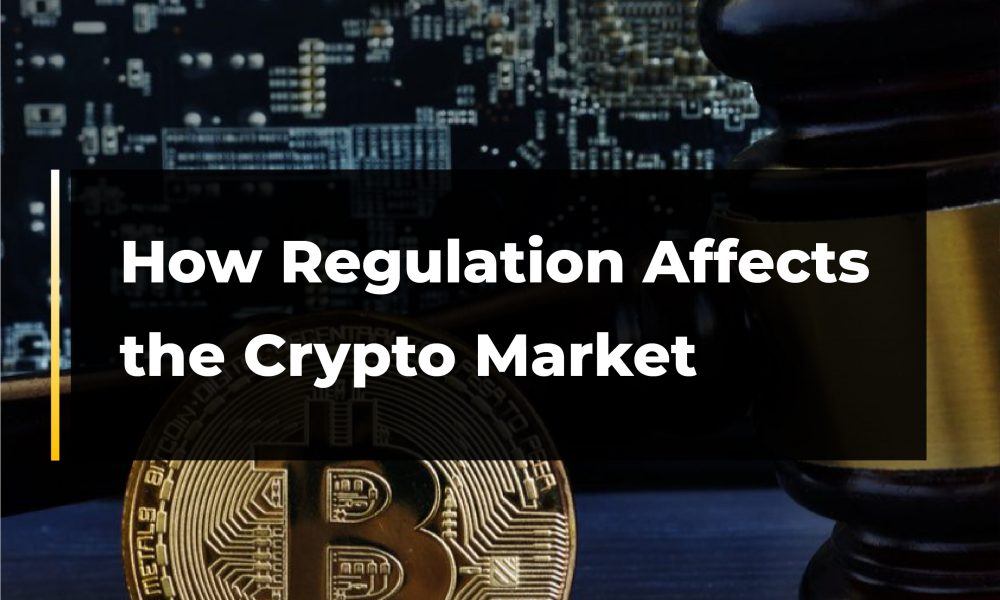Cryptocurrencies have gained immense popularity in past years and claim to present benefits, such as decentralization, anonymity, and ownership. However, the unregulated nature of cryptocurrencies poses significant risks, including manipulated volatility and fraud. That’s why crypto regulation has been gaining strong ground in recent times.
Crypto regulation refers to the legal framework that governs the use, sale, and trade of cryptocurrencies. Such regulation is aimed at protecting investors and users, preventing fraud, and ensuring the stability of the market. Due to worries about regulation and security, the majority of institutional investors like hedge funds and investment banks are on the sideline of the cryptocurrency market.
The regulatory landscape remains complex and fragmented, where regulations from country to country differ. Hence, the approach to crypto regulation should be properly understudied before implementation. This article explores the benefits of crypto regulation and how it has impacted the crypto market.
Increased Market Stability
Regulated cryptocurrencies are subject to market standards and practices that can help to stabilize the market. Regulating cryptocurrencies can help to reduce market manipulation that may lead to unnecessary volatility.
For instance, the introduction of circuit breakers, which pause trading when the price of an asset drops rapidly by a significant percentage, has helped to stabilize the stock market. Implementing similar measures for cryptocurrencies can reduce market volatility, ultimately making them more attractive to investors.
Improved Investor Confidence
Regulation can improve investor confidence in the cryptocurrency market by creating a level playing field, where all participants are subject to the same rules and regulations. Further, the market will become more fair and transparent.
Reduction in Fraudulent Activities
Fraudulent activities have been a significant problem in the crypto space. Cryptocurrencies are vulnerable to various forms of fraud, such as Ponzi schemes and fake ICOs. Regulated cryptocurrencies are subject to strict guidelines that help to prevent such fraudulent activities. Also, crypto regulation can provide investors with a means to recover their investments in the event of fraud or misconduct.
Encourage Institutional Investment
Regulation can help encourage Institutional investment which is essential for the expansion and sustainability of the cryptocurrency market. Institutional investment may result in more market liquidity, which may help to stabilize prices and contain market volatility. Institutional investors can also contribute a sizeable amount of money, which can support the funding of new initiatives and promote innovation in the cryptocurrency industry.
An increase in Global Adoption of Cryptocurrencies
Regulation may facilitate wider global adoption of cryptocurrencies and mainstream integration into the financial system. The lack of regulatory frameworks has resulted in a mixture of laws and regulations, which can be complex and challenging for investors and users. Regulated cryptocurrencies make it simpler to use and invest in cryptocurrencies by giving users and investors a clear and uniform set of rules.
In recent times the U.S Security and Exchange Commission charged crypto firms like Gemini, Genesis, Nexo, Sushi, Coinbase, Terraform, FTX, Binance, and many others alleging violation of services not compliant with the SEC rules. Individuals like Do Kwon, Sam Bankman-fried, and Justin Sun, have also been charged by SEC for noncompliance and others for fraud.
Countries keen on regulation include the U.S., China, and Hong Kong among a long list of others.
These regulatory activities have impacted the market positively on the side of investors easing their skepticism on the crypto market via an assurance that the law would take out on founders guilty of fraudulent activities.
Do Kwon of Terraform Labs was charged by the SEC with fraud owing to the collapse of the LUNA currency and other activities that followed. Likewise, the imploded FTX CEO, Sam Bankman-fried was charged with several violations one was for fraud. Having been arrested a couple of times and tried, the SEC has also made moves that resulted in funds recovery.
These series of interventions by the SEC have in a way assured players that the system is not left without caution from relevant authorities. Additionally, the SEC requested key exchanges like Binance to show relevant background information that will help detect any violations.
On the side of firms and exchanges, the regulation has stifled innovation and reduced competition which is essential for the growth of the industry. Regulation has the potential to introduce a two-tier market where small players may not be able to comply. This may concentrate power on the few big players limiting wider participation in the market.
Ultimately, to ensure the success and sustainability of the crypto market over the long term, it is crucial to find a balance between regulation and innovation as the industry continues to develop.
Read also;
How stablecoins provides stability in the crypto market
What do you think of this article? Share comments below.
Credit: Source link




























